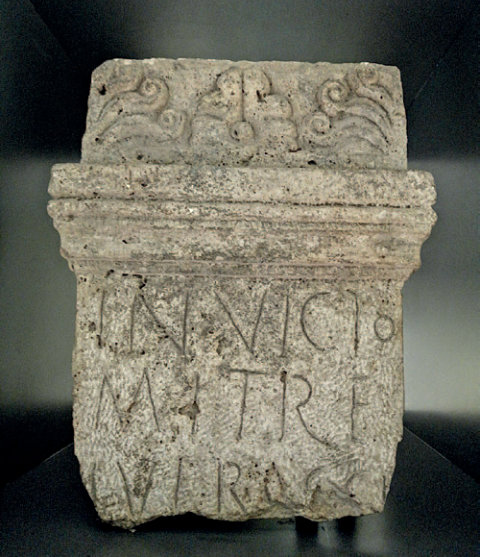
Iulius Rasci
Alias Iulius Racci
Roman citizen who dedicated an altar to the invincible Mithras in Teutoburgium.
Biography
of Iulius Rasci
- Iulius Rasci was a syndexios.
- Active c. 2nd – 3rd century in Teutoburgium, Pannonia inferior, Pannonia [TNMM 752].
TNMP 259
Iulius Rasci or Racci dedicated a Roman altar discovered in Borovo, Croatia. The use of "Iulius" suggests that his family may have acquired Roman citizenship in the early imperial period, indicating possible long-term integration into Roman society. The ambiguity of the surname, wheter Rasci or Racci, due to damage to the altar, leaves the exact identity and background largely speculative.
There is no record in the Onomasticon provinciarum Europae Latinarum (OPEL) of any cognomina or gentilicia beginning with "RASCI" or "RACCI". Iulius Rasci or Racci’s involvement in Mithraic worship is in keeping with the general trend of the cult’s popularity among Roman military personnel, freedmen and slaves in Pannonia during this period.
His devotion to Mithras, together with the historical context, suggests that he may have been a soldier or veteran, possibly involved in the customs or financial services of the Roman province of Pannonia.
References
- Inga Vilogorac Brčić; Laurent Bricault (2021) ‘Mithras in Teutoburgium.’ Prilozi Instituta za arheologiju u Zagrebu, 38(2),199-204.
Mentions
Altar of Iulius Rasci from Borovo
TNMM 752
This Mithraic altar of a certain Iulius Rasci or Racci was found in 1979 in a field in Borovo, Croatia, in the area of the Roman fort of Teutoburgium.

